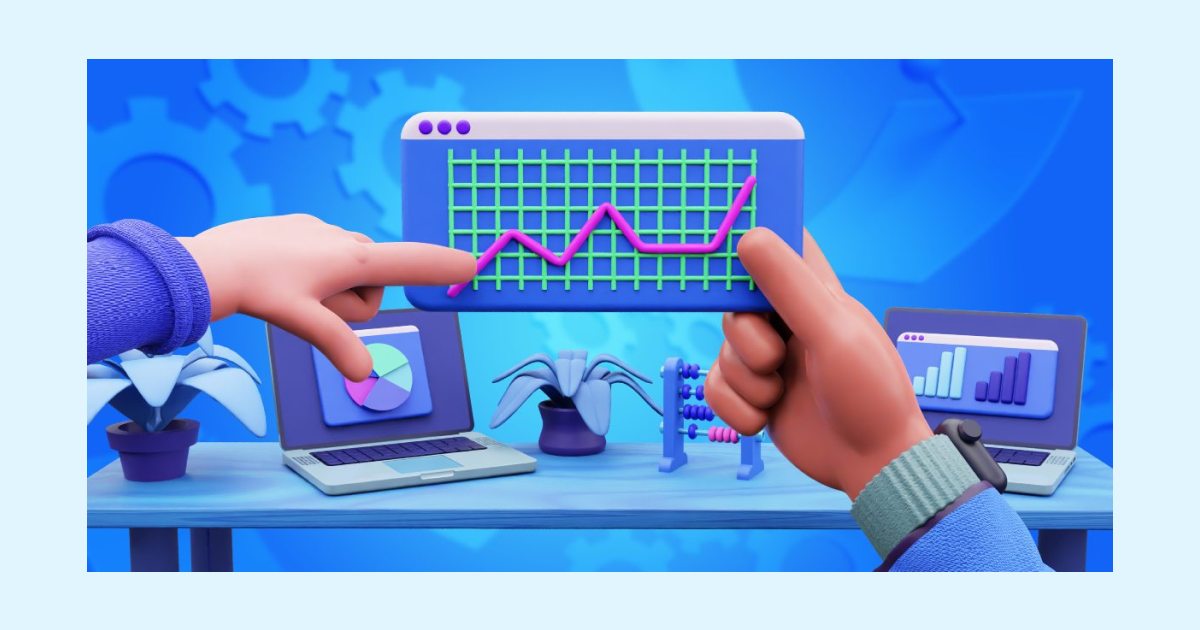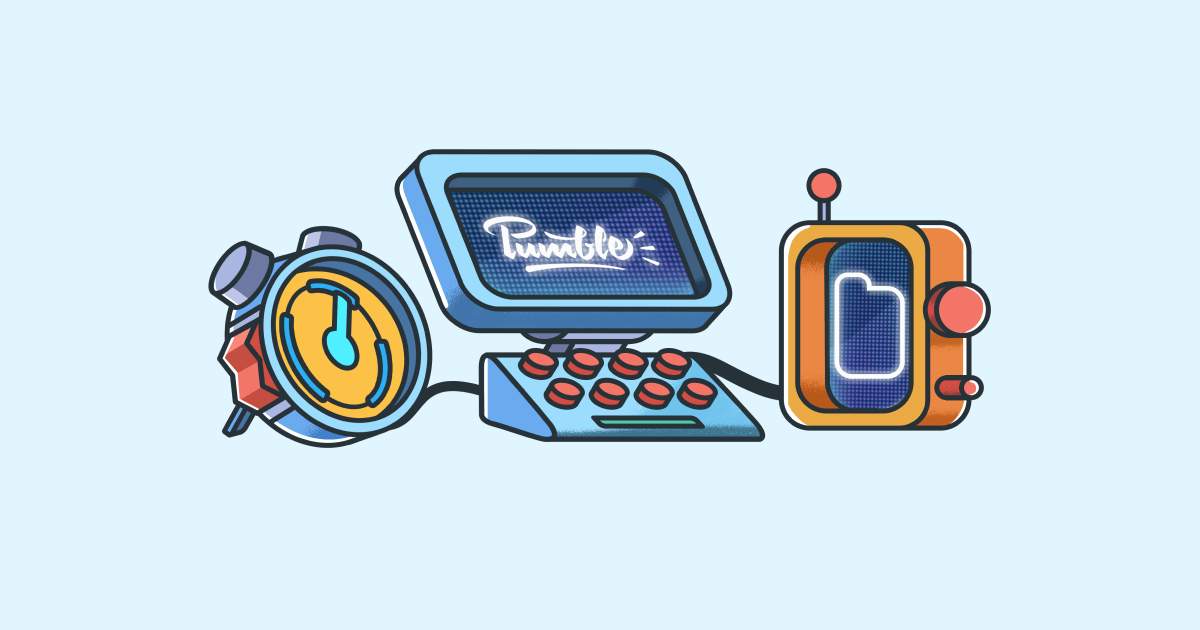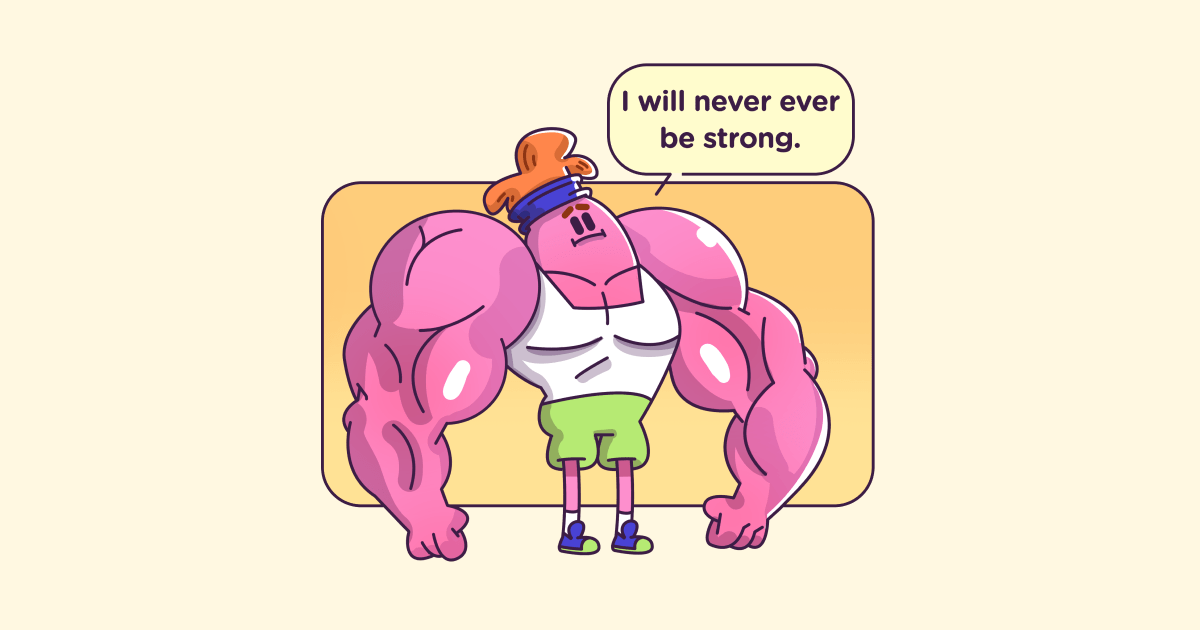25+ Best productivity books
Last updated on: December 17, 2021
The choice to be more productive and time-efficient is always the right choice – but how do you make it a reality?
People get carried away easily with the definition of productivity – some would say it is the output or getting more things done. But what you may not know is that productivity is the result of the input. By input, we mean how efficiently the resources (time, capital, manpower, etc.) are being used to produce the output.
In other words, to be productive, one must efficiently use time, money, or manpower.
Make the extra effort.
Maybe change some productivity-killing habits and routines.
Shift your mindset.
Embrace changes, and much more.
By investing in the “input” – the “output” (productivity) will increase, too.
Perhaps the most effective way to boost your productivity is to read what professionals have to say on that topic and make use of the vast number of books on productivity currently popular on the market.
That’s why we’ve prepared a list of the 27 best and most acknowledged books with tips, tricks, hacks, and advice that will help you streamline your work routine, alter your habits, shift your mindset, minimize time-wasters – all in favor of boosting your productivity.
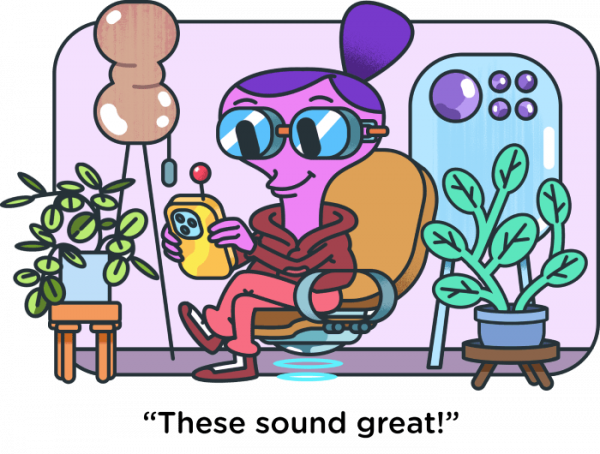
Table of Contents
The Productivity Project: Accomplishing More by Managing Your Time, Attention, and Energy
Amazon:★★★★☆ 4.5 (617 votes) | Goodreads:★★★★☆ 3.9 (7,802 votes)
A book based on the author’s personal experiences and observations while conducting productivity experiments on himself.
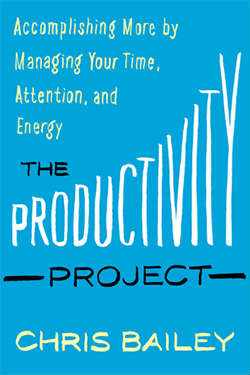
Author: Chris Bailey
Quote: ”Business is no different from laziness when it doesn’t lead you to accomplish anything.”
Who’s it for? Those interested to experiment with various productivity tactics to find the most effective one.
What’s it about? The Productivity Project offers the insights Chris Bailey gathered through a number of unusual productivity adventures he went through in a year.
What you’ll learn? You’ll learn what productivity strategies may be best suited for you, considering Bailey had no qualms in his research and tried:
- Sleeping as little as possible for several weeks
- Living in isolation for 10 days
- Working for 90 hours per week
- Dropping caffeine and sugar from his diet
- Getting up extremely early in the morning for a month
Each experiment had a certain impact on his work, in terms of quality and quantity – Bailey singles out the 30 practices that he found to work the best.
Atomic Habits: An Easy Proven Way to Build Good Habits Break Bad Ones
Amazon:★★★★★ 4.8 (56,665 votes) | Goodreads:★★★★☆ 4.4 (282,582 votes)
A strategic book on how to build good habits that will last.
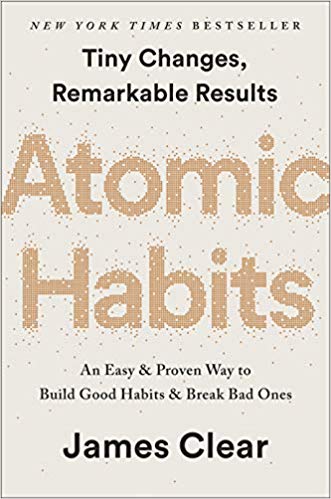
Author: James Clear
Quote: “When nothing seems to help, I go and look at a stonecutter hammering away at his rock, perhaps a hundred times without as much as a crack showing in it. Yet at the hundred and first blow it will split in two, and I know it was not that last blow that did it — but all that had gone before.”
Who’s it for? Everyone who wants to form good habits or lose bad ones.
What’s it about? If you’re having trouble changing your habits, the problem isn’t you. The problem is your system. Bad habits repeat themselves again and again not because you don’t want to change, but because you have the wrong system for change. You do not rise to the level of your goals. You fall to the level of your systems. Here, you’ll get a proven system that can take you to new heights.
What you’ll learn? You will learn how to make time for new habits (even in most stressful situations), overcome a lack of motivation and willpower, design your environment to make success easier, and get back on track when you fall off course.
Rework
Amazon: ★★★★☆ 4.5 (4,022 votes | Goodreads: ★★★★☆ 3.9 (151,746 votes)
A whole new and unconventional approach to growing your business.
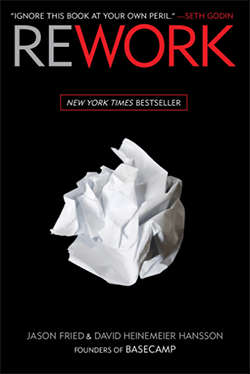
Authors: Jason Fried and David Heinemeier Hansson
Quote: “When you don’t know what you believe, everything becomes an argument. Everything is debatable. But when you stand for something, decisions are obvious.”
Who’s it for? People looking for new, alternative solutions to traditional business formulas such as making a business plan, studying the competition, seeking investors, and the like.
What’s it about? Rework takes old business formulas and explains why you need to rework them – Fried and Hansson explain why plans are harmful, why investors may be unnecessary, and why it’s best to ignore the competition.
What you’ll learn? You’ll learn why a simple work routine (with minimized paperwork, meetings, and the time spent at work) is always best, and why you don’t even need an office or staff to succeed.
This book will also show you why to challenge everything you think you know about business.
Deep Work: Rules for Focused Success in a Distracted World
Amazon: ★★★★★ 4.6 (10,379 votes) | Goodreads: ★★★★☆ 4.2 (107,174 votes)
Deal with distractions on a whole new level with this remarkable book.
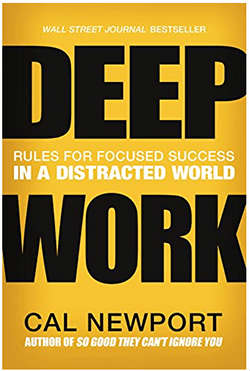
Author: Cal Newport
Quote: “If you don’t produce you won’t thrive – no matter how skilled or talented you are.”
Who’s it for? For those who want to learn how to focus without distraction on cognitively demanding tasks, but fear that their attention span is short-lived.
What’s it about? Deep Work is a practical guide that shows the importance of focused work, through a number of interesting real-life examples. The first part of the book distinguishes between shallow and deep work:
- Shallow work – can be performed despite distractions, or as a result of them. It’s easy to replicate, but not truly valuable.
- Deep work – more focused work, performed free of distractions. It needs practice and effort but is much more important to achieve.
What you’ll learn? The second part of the book offers a training regimen meant to help you cultivate deep work – you’ll learn the 4 rules that will help you transform your mind and adopt this skill.
Digital Minimalism: Choosing a Focused Life in a Noisy World
Amazon: ★★★★★ 4.6 (2,984 votes) | Goodreads: ★★★★☆ 4.1 (53,879 votes)
New York Times bestselling author Cal Newport has another insightful book for those in need of digital detox.
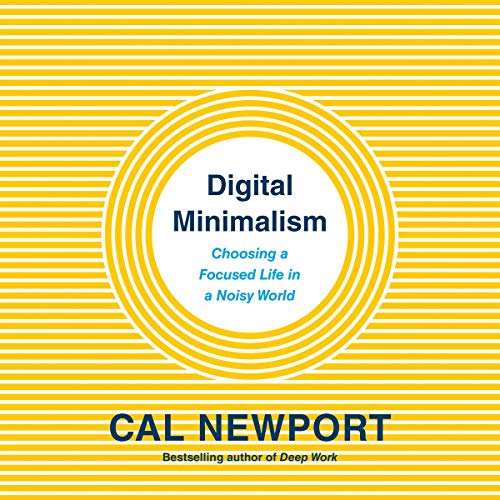
Author: Cal Newport
Quote: “Digital minimalism definitively does not reject the innovations of the internet age, but instead rejects the way so many people currently engage with these tools.”
Who’s it for? People enthralled by social media and obsessive phone checking.
What’s it about? Digital Minimalism is not about completely quitting the internet and social media — but finding the right balance when using them.
What you’ll learn? Digital Minimalism will give you hands-on tips and tricks on how to use social media, for what purposes, and most importantly how much is enough. Newport offers useful strategies for integrating his tips and tricks into your life — such as a 30-day “digital declutter” and much more.
Daily Rituals: How Artists Work
Amazon: ★★★★☆ 4.2 (808 votes) | Goodreads: ★★★★☆ 3.6 (17,570 votes)
An inspiring book about how some of the greatest minds manoeuvre obstacles and rituals to get the work done.
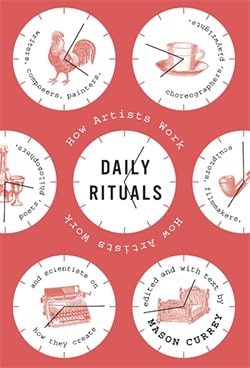
Author: Mason Currey
Quote: “It is a danger to wait around for an idea to occur to you. You have to find the idea.”
Who’s it for? Anyone interested to know which methods, strategies, and rituals do/did the great minds of famous novelists, playwrights, painters, scientists use to get the work done.
What’s it about? Daily Rituals presents the readers with 161 inspiring people and their daily rituals. Some were odd, some unusual, some downright bizarre, but all were vital in making them successful.
What you’ll learn? You’ll learn about the habits that shaped and still shape great minds from the past and present – you’ll learn why Igor Stravinsky insisted on an audience in order to compose, why Thomas Wolfe insisted on writing while standing, and how much time Mozart spent on his music every day.
The book also covers the daily rituals of Kafka, Beethoven, Agatha Christie, Andy Warhol, Jane Austen, and many more.
Tools of Titans: The Tactics, Routines, and Habits of Billionaires, Icons, and World-Class Performers
Amazon: ★★★★★ 4.7 (6,518 votes) | Goodreads: ★★★★☆ 4.0 (39,014 votes)
A compilation of interviews from the Tim Ferriss Show podcast.
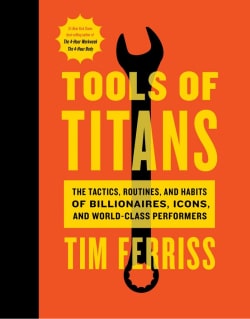
Author: Timothy Ferriss
Quote: “I always advise young people to become good public speakers (top 25%). Anyone can do it with practice. If you add that talent to any other, suddenly you’re the boss of the people who have only one skill.”
Who’s it for? Everyone who wants bite-sized productivity tips from the top 1% performs in any given field.
What’s it about? Tim Ferriss has over 200 podcasts where he interviewed celebrities, athletes, entrepreneurs, and scientists. This book is a compilation of the best pieces of advice, as well as tips and strategies on how to improve your life and productivity.
What you’ll learn? You’ll learn a lot of interesting stuff, like how to create a real-world MBA, tactics for dealing with haters, what books famous people read, what’s the one thing they wish they knew at the start of their careers, and more.
Eat that Frog!: 21 Great Ways to Stop Procrastinating and Get More Done in Less Time
Amazon: ★★★★★ 4.7 (3,750 votes) | Goodreads: ★★★★☆ 3.9 (57,185 votes)
The third edition of this legendary book is updated with new information on how to stop procrastinating for good.
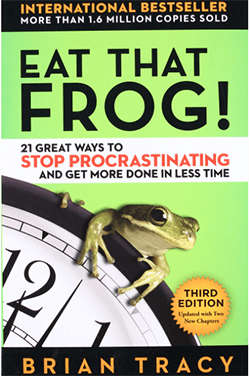
Author: Brian Tracy
Quote: “If you have to eat two frogs, eat the ugliest first.” This is another way of saying that if you have two important tasks before you, start with the biggest, hardest, and most important task first.”
Who’s it for? Anyone struggling with how to prioritize tasks, and single out the most important assignments.
What’s it about? The book Eat That Frog! explains how you can prioritize tasks, by illustrating the problem with frogs – your most urgent, important, or unpleasant task is the biggest, ugliest frog in your pond. To call your day a success, “eat that frog” first — i.e., finish the said task as soon as possible. Once you’ve finished with this task, you’ll know that the worst is behind you, so you’ll be able to tackle your remaining tasks with ease.
What you’ll learn? Tracy offers 21 tips and strategies that will help you learn how to get more work done, but in the right, priority order.
The latest, updated edition of the book offers two extra chapters:
- The first chapter explains how you can use technology to keep an eye on your priorities.
- The second offers advice on how you can avoid distractions that keep you away from your work.
Essentialism: The Disciplined Pursuit of Less
Amazon: ★★★★★ 4.6 (8,222 votes) | Goodreads: ★★★★☆ 4.0 (77,408 votes)
A powerful book about prioritizing work and getting only the right things done.
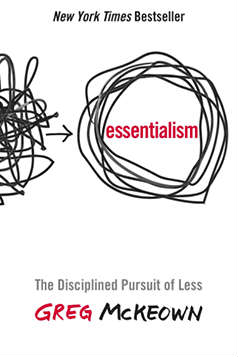
Author: Greg McKeown
Quote: “Remember that if you don’t prioritize your life someone else will.”
Who’s it for? Those who feel like they rarely make their own choices, who feel overwhelmed with work, who are constantly busy, but rarely productive; the people who always underestimate the time it takes to finish something.
What’s it about? Essentialism twists the old “do more in less time” productivity formula and proposes that you should only do the important stuff.
By only focusing your energy on selecting essential tasks, you’ll regain control over your time, and start making your own decisions and choices.
What you’ll learn? McKeown shows how you can identify and focus on the essentials, eliminate trivial tasks, as well as learn how to prioritize tasks, in order to move forward with your own goals.
The War of Art: Break Through the Blocks and Win Your Inner Creative Battles
Amazon: ★★★★★ 4.6 (11,342 votes) | Goodreads: ★★★★☆ 4.0 (87,153 votes)
A useful guide for overcoming creative block.
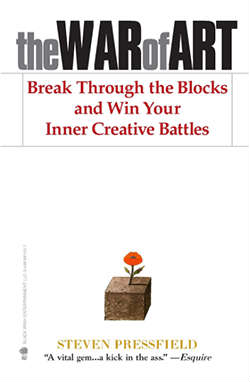
Author: Steven Pressfield
Quote: “If you find yourself asking yourself (and your friends), “Am I really a writer? Am I really an artist?” chances are you are. The counterfeit innovator is wildly self-confident. The real one is scared to death.”
Who’s it for? Artists looking to succeed in a creative field of work and beat their own insecurities.
What’s it about? The War of Art advises on how to recognize your procrastination process and offers aspiring artists insight into how they can bridge obstacles in their creative work.
What you’ll learn? Whether you’re a writer, screenwriter, painter, or any other type of artist, this book will show how you can make your dreams a reality through dedicated work, and by treating your dreams as a full-time job.
This book will also show you how and why focusing your full attention on one particular field of creative work will bring you the most benefits.
Getting Things Done: The Art of Stress-Free Productivity
Amazon: ★★★★☆ 4.5 (4,753 votes) | Goodreads: ★★★★☆ 4.0 (145,837 votes)
The 2015’s version of one of the most popular productivity classics currently available.
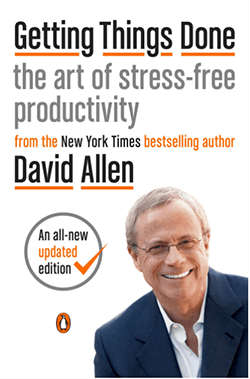
Author: David Allen
Quote: “You can do anything, but not everything.”
Who’s it for? Anyone looking for motivation to finish their intended tasks, and anyone looking to organize their workdays in a straightforward manner.
What’s it about? Getting Things Done is a classic among productivity books – and the all-new updated version only builds upon a number of practical advice you can use. This book teaches you how to set up an effective system of reminders and lists, to help you stop thinking about what tasks you need to do — and instead actually do them.
What you’ll learn? You’ll learn the concepts of the “collection bucket” and “next actions list”, as well as why you should start small, how to make work interesting, and how you can find productivity practices that work for you.
When writing this updated version, Allen adjusted the original book from 2002 to fit with the modern world rules — so he added new material that modernizes his original advice.
The Power of Habit: Why We Do What We do in Life and Business
Amazon: ★★★★★ 4.6 (18,060 votes) | Goodreads: ★★★★☆ 4.1 (411,201 votes)
This book reveals true human potential when inducing changes in habits.
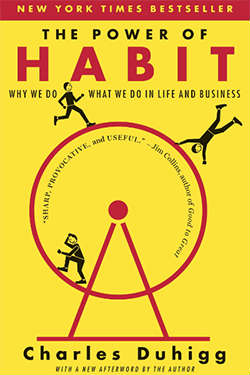
Author: Charles Duhigg
Quote: “Change might not be fast and it isn’t always easy. But with time and effort, almost any habit can be reshaped.”
Who’s it for? People interested to understand why they do what they do, and everyone who’d want to have more willpower in resisting bad habits.
What’s it about? The Power of Habit offers scientific explanations on why we have certain habits, and how we can overcome them. You’ll discover neuroscientific explanations of how habits work in general, as well as learn how certain keystone habits can bring you success.
What you’ll learn? The book tackles habits through a number of interesting narratives – you’ll learn how you can transform your life and work, through key takeaways from the habits of successful people.
Smarter Faster Better: The Secrets of Being Productive in Life and Business
Amazon: ★★★★★ 4.6 (1,504 votes) | Goodreads: ★★★★☆ 3.9 (30,697 votes)
This insightful book is based on the idea that how you think can shape your future.
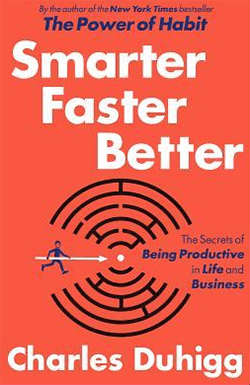
Author: Charles Duhigg
Quote: “A sense of control can fuel motivation, but for that drive to produce insights and innovation, people need to know their suggestions won’t be ignored, that their mistakes won’t be held against them.”
Who’s it for? People who’ve already understood why they do what they do by reading The Power of Habit, but now what to know how to improve on what they do.
What’s it about? Smarter Faster Better uses the latest neuroscience, behavioral, psychological research to show why controlling how you think is more important than controlling what you think.
What you’ll learn? In his second book from this list, Duhigg talks about the 8 productivity concepts that clarify why some people manage to get a lot of work done – motivation, setting goals, making decisions, and focusing on a task at hand are some of the concepts you’ll learn more about.
This book illustrates its points through many real-life examples and informative reports, so you’ll get vivid explanations for why your own choices and decisions determine your productivity, and how to improve on your work.
The 7 Habits of Highly Effective People: Powerful Lessons in Personal Change
Amazon: ★★★★★ 4.6 (7,051 votes) | Goodreads: ★★★★☆ 4.1 (615,646 votes)
An impactful book about the habits of successful people.
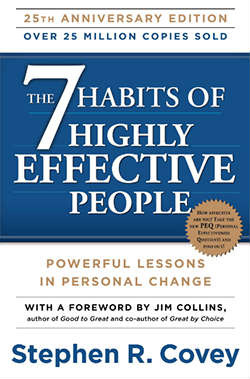
Author: Stephen R. Covey
Quote: “Start with the end in mind.”
Who’s it for? Anyone who’s having trouble saying “no”, taking responsibility in life, identifying personal goals, listening to, or cooperating with others.
What’s it about? The 7 Habits of Highly Effective People is another classic among productivity books – it offers 7 habits you can replicate in an effort to be more productive and effective.
What you’ll learn? Covey goes into detail with his proposed 7 habits, listing practical benefits behind each, so you’ll learn how to:
- Take responsibility in your life and be more proactive.
- Begin with the end in mind and visualize what you want to achieve with certain actions.
- Put first things first and say “no” from time to time in order to put matters in perspective and focus on your priorities.
- Think Win-Win instead of win-lose and look for mutual benefits in all your interactions with other people.
- Seek first to understand rather than to be understood and listen actively to others.
- Synergize and cooperate creatively with your team.
- Sharpen the saw and maintain steady growth in your life to keep you fresh for tackling the previous 6 points.
Mindset: The New Psychology of Success
Amazon: ★★★★★ 4.6 (11,423 votes) | Goodreads: ★★★★☆ 4.0 (115,467 votes)
An updated bestseller on developing a growth mindset.
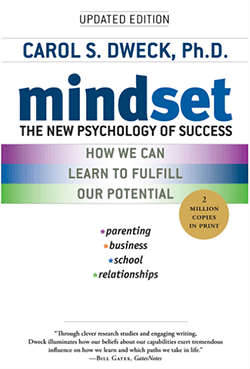
Author: Carol S. Dweck
Quote: “Did I win? Did I lose? Those are the wrong questions. The correct question is: Did I make my best effort? If so, he says, “You may be outscored, but you will never lose.”
Who’s it for? Anyone who believes people are stuck with the same abilities they were born with, for the rest of your life.
What’s it about? The Mindset shows why you shouldn’t view your talents as fixed assets you can no longer improve on and explains how you can cultivate a “growth mindset” instead.
What you’ll learn? You’ll learn how to change your thought processes to recognize your potential to grow your talent, abilities, and skills.
The newest edition of the book also proposes a new twist to Dweck’s original concept from 2007 – you’ll learn what “false growth mindset” is and how to implement it to develop a more meaningful, profound “growth mindset”.
The ONE Thing: The Surprisingly Simple Truth Behind Extraordinary Results
Amazon: ★★★★★ 4.7 (10,344 votes) | Goodreads: ★★★★☆ 4.1 (56,138 votes)
A hands-on guide on how to achieve more in less time.
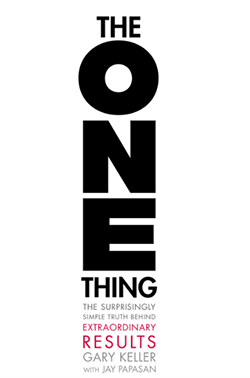
Author: Gary Keller and Jay Papasan
Quote: “It is not that we have too little time to do all the things we need to do, it is that we feel the need to do too many things in the time we have.”
Who’s it for? Anyone having trouble focusing on one thing at a time.
What’s it about? The One Thing provides a straightforward approach to productivity, that asks the question – What is the one thing most important to you at the moment?
What you’ll learn? You’ll learn how to feel less stressed, how to minimize distractions and declutter your workload, as well to be more focused and energized to tackle a task at hand.
Keller and Jay Papasan also help you identify your short-term and long-term goals, teach you how to efficiently say “No” to extra work, and show the best ways to keep a work/life balance.
First Things First
Amazon: ★★★★☆ 4.5 (920 votes) | Goodreads: ★★★★☆ 4.1 (40,222 votes)
From the author of The 7 Habits of Highly Effective People comes another practical book on how to prioritize daily activities efficiently.
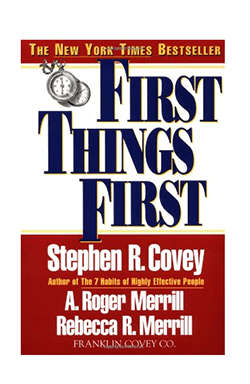
Author: Stephen R. Covey, A. Roger Merrill, and Rebecca R. Merrill
Quote: “What we believe about ourselves and our purpose has a powerful impact on how we live, how we love, and what we learn.”
Who’s it for? People who make lists of what they need to do for the day, but don’t know what they want to achieve by finishing said lists.
What’s it about? First Things First shows how you can stop abiding by To-dos, schedules, appointments, and understand what your goals, values, and principles in life really are.
What you’ll learn? You’ll learn how to focus on what’s important in your life (and not just on what’s urgent), how to visualize what you want to achieve, and how to cooperate with people to reach the results you want.
Free to Focus: A Total Productivity System to Achieve More by Doing Less
Amazon: ★★★★★ 4.6 (981 votes) | Goodreads: ★★★★☆ 4.1 (6,011 votes)
A profound book on getting the right things done.
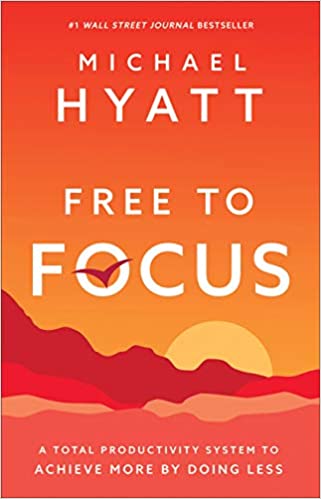
Author: Michael Hyatt
Quote: “If you want to master your schedule, increase your efficiency and output, and create more margin in your life for the things you care about, you’ve got to learn how to focus.”
Who’s it for? Free to Focus is mostly focused on people who feel overwhelmed by working up to 70 or more hours a week.
What’s it about? Free to Focus is about reducing long working hours without hurting your productivity.
What you’ll learn? You will find helpful guides on how to accomplish more things throughout a workday by integrating different principles in your work routine — such as meaningful, i.e., deep work, filtering what’s important, eliminating distractions, learning how to delegate work, and much more.
The Effective Executive: The Definitive Guide to Getting the Right Things Done
Amazon: ★★★★★ 4.6 (1,407 votes) | Goodreads: ★★★★☆ 4.0 (32,455 votes)
Originally published in 1966, this timeless book still steals the spotlight when it comes to being an effective executive.
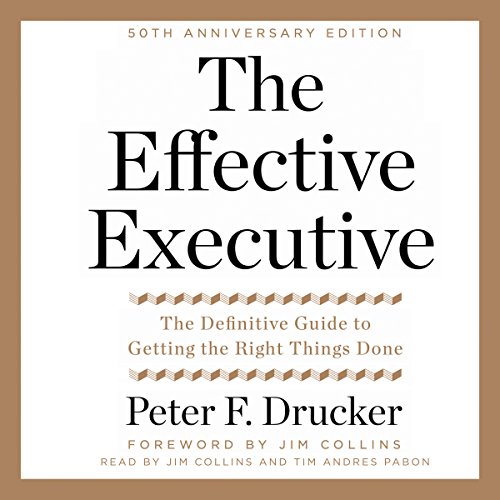
Author: Peter F. Drucker
Quote: “One cannot hire a hand – the whole man always comes with it.”
Who’s it for? It’s best for people in managerial positions.
What’s it about? The Effective Executive is not about being a stereotypical leader but the one who thinks what’s beneficial to the company; who has a developed action plan; who takes responsibility for their actions and decisions; the one who says “we” instead of “I”.
What you’ll learn? According to Drucker, as an executive, you need to learn five habits to become an effective executive:
- Be aware of how you utilize your time,
- Focus on results and how you contribute to your organization,
- Avoid mediocrity and hone your strengths,
- Know your priorities,
- Make effective decisions.
The Checklist Manifesto: How to Get Things Right
Amazon: ★★★★★ 4.6 (5,392 votes) | Goodreads: ★★★★☆ 4.0 (58,593 votes)
From an acclaimed surgeon, Dr. Gawande, comes an intellectual adventure based on true stories and Gawande’s observations.
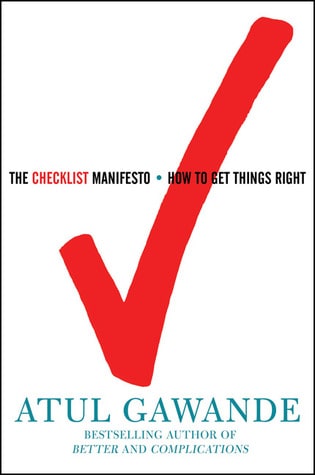
Author: Atul Gawande
Quote: “Good checklists, on the other hand are precise. They are efficient, to the point, and easy to use even in the most difficult situations. They do not try to spell out everything–a checklist cannot fly a plane. Instead, they provide reminders of only the most important steps–the ones that even the highly skilled professional using them could miss. Good checklists are, above all, practical.”
Who’s it for? The principles of this book (using checklists for better performance and lack of human error) can be used across industries such as medicine, aviation, construction, business, for everyday use, and many more.
What’s it about? The Checklist Manifesto is about forming a habit of consulting a checklist before performing any task in order to avoid making reckless human errors.
What you’ll learn? You’ll learn how to integrate checklists into your work routine or for personal use as an effective tool to make sure you get things done right and decrease avoidable human errors.
The 4-Hour Workweek
Amazon: ★★★★☆ 4.5 (15,352 votes) | Goodreads: ★★★★☆ 4.0 (238,461 votes)
A whole new perception of how a workweek should look like.
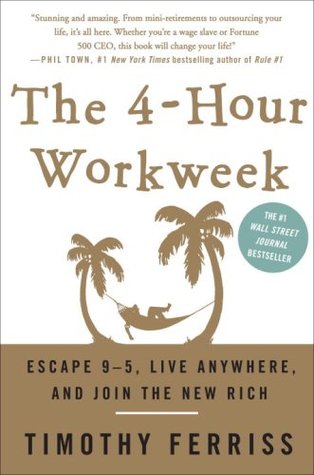
Author: Timothy Ferriss
Quote: “Getting fired, despite sometimes coming as a surprise and leaving you scrambling to recover, is often a godsend. Most people aren’t lucky enough to get fired and die a slow spiritual death over 30–40 years of tolerating the mediocre.”
Who’s it for? Anyone suffering from overworking or feeling trapped in their own job.
What’s it about? The 4-hour workweek talks about a newly-coined term “New Rich” – a fast-growing society with an inspirational perspective on how to cut down working hours in order to live a luxurious life without having to stick to one place for the entire life.
What you’ll learn? You will get practical tips from people whose lives have been changed since incorporating the principles from this book into their daily routines. In addition, you’ll learn how to eliminate trivial activities, change your perception of money, how to outsource effectively, and much more — in order to create a meaningful life investing little time.
Flow: The Psychology of Optimal Experience
Amazon: ★★★★☆ 4.5 (3,311 votes) | Goodreads: ★★★★☆ 4.1 (68,200 votes)
The new edition of this classic psychology book will help you reach your full potential.
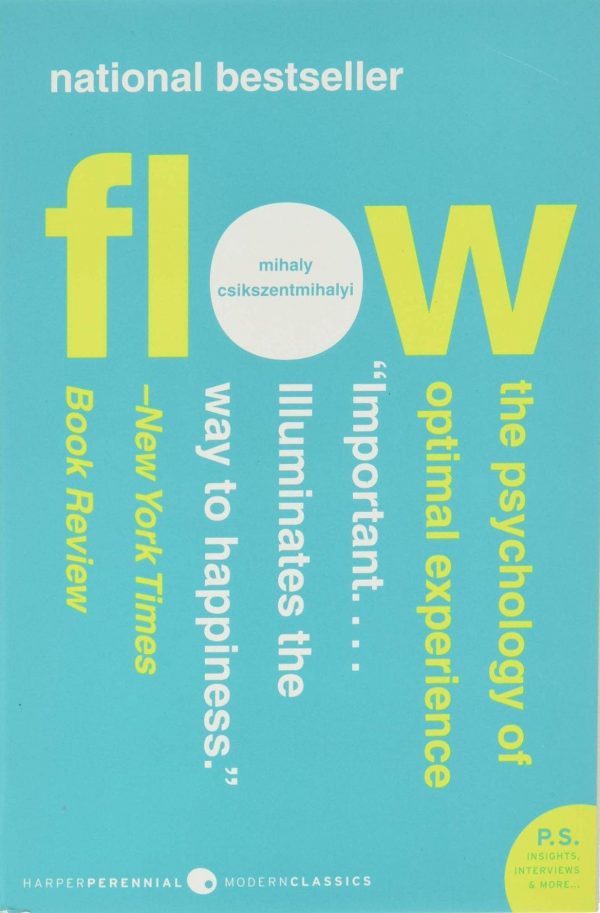
Author: Mihaly Csikszentmihalyi
Quote: “The best moments in our lives, are not the passive, receptive, relaxing times — although such experiences can also be enjoyable, if we have worked hard to attain them. The best moments usually occur when a person’s body or mind is stretched to its limits in a voluntary effort to accomplish something difficult and worthwhile.”
Optimal experience is thus something that we make happen. For a child, it could be placing with trembling fingers the last block on a tower she has built, higher than any she has built so far; for a swimmer, it could be trying to beat his own record; for a violinist, mastering an intricate musical passage. For each person there are thousands of opportunities, challenges to expand ourselves.”
Who’s it for? For those who want to lead a more pleasant life filled with creativity and deep enjoyment.
What’s it about? The author of this book describes flow as a special state of mind in which you are fully focused on the task at hand. Flow can start up when you are cooking lunch, watching a movie, giving a presentation at a meeting, etc.
What you’ll learn? Flow will teach you how to perform tasks in a way that you remain productive and achieve fruitful results. To experience flow, you need to:
- Fully concentrate, eliminate distractions and multitasking,
- Let go of your fears and insecurities,
- Give yourself frequent feedback,
- Challenge yourself to reach your full potential (if you, for example, need two hours to edit one document, challenge yourself to edit that document in an hour and a half by setting a timer for one hour and thirty minutes).
The Willpower Instinct: How Self-Control Works, Why It Matters, and What You Can Do to Get More of It
Amazon: ★★★★★ 4.6 (1,687 votes) | Goodreads: ★★★★☆ 4.1 (29,654 votes)
This powerful book about self-control will give you useful guidance on how to regulate your emotions and actions in the face of temptations.
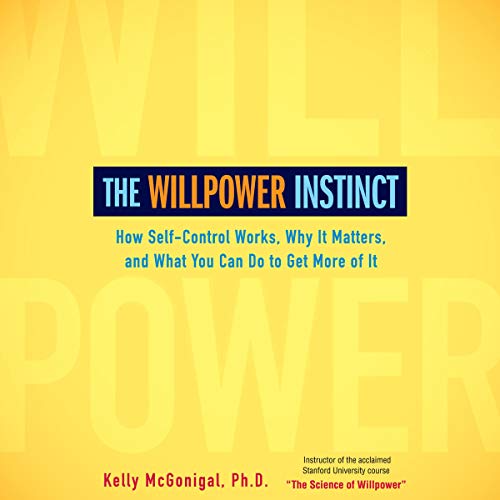
Author: Kelly McGonigal
Quote: “The biggest enemies of willpower: temptation, self-criticism, and stress. (…) these three skills – self-awareness, self-care, and remembering what matter most – are the foundation for self-control.”
Who’s it for? For those who can’t resist short-term pleasures like eating a cake each time they pass a pastry shop, sleeping until noon, judging someone before knowing the whole truth, etc.
What’s it about? The Willpower Instinct emphasizes the importance of a part of the brain called the prefrontal cortex. It’s what distinguishes a modern man from his primitive versions throughout evolution and his self-indulgent instinct “do that”, “eat that”, “kill that”. When you are more likely to sleep until noon, your prefrontal cortex makes you want to get up and finish the work.
What you’ll learn? You will learn how to have better control over your emotions, self-indulgence, and actions in order to have a healthier and more productive life. Whether you want to be more productive at work or stay on your diet – this book will give you life-changing advice and complementary exercises to reach your goals.
Remote: Office Not Required
Amazon: ★★★★☆ 4.2 (1,185 votes) | Goodreads: ★★★★☆ 3.8 (12,476 votes)
From the authors of Rework comes this farsighted book to completely prepare you for remote working.
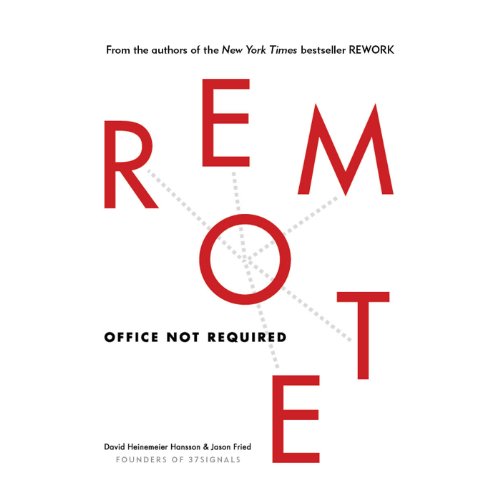
Author: Jason Fried and David Heinemeier Hansson
Quote: “Meaningful work, creative work, thoughtful work, important work – this type of effort takes stretches of uninterrupted time to get into the zone. But in the modern office, such long stretches just can’t be found. Instead, it’s just one interruption after another.”
Who’s it for? Small business owners will find this book encouraging when it comes to integrating remote working into their business; managers will learn about useful strategies and tools to manage remote employees; remote workers will find out the ways to unleash their creativity and productivity.
What’s it about? Remote talks about the benefits of remote working such as reducing turnover, increasing talent pools, etc., and gives profound advice on how to do it effectively.
What you’ll learn? This book’s strong claims will convince you that you don’t need an actual office to prove your work, creativity, or productivity. It promotes remote working as the future of work and better work-life balance.
Surviving Remote Work: How to Thrive as a Leader and Entrepreneur in the Remote Age
Amazon: ★★★★☆ 4.5 (24 votes) | Goodreads: ★★★★★ 4.7 (7 votes)
This insightful book will give helpful hints for distant working based on personal experience.
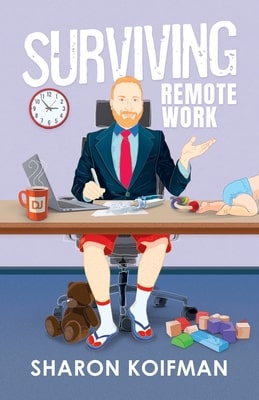
Author: Sharon Koifman
Quote: “Remote work forces you to get out of your comfort zone, and that might be the best thing to ever happen to you and your company.”
Who’s it for? Small business owners can find useful guidance on how to manage a remote team and build trust within the team while avoiding micromanagement. Novice remote workers will also find simple tricks and tips for productive remote working.
What’s it about? Surviving remote work talks about all the obstacles that one can come across when working remotely and provides useful guidance on how to overcome them.
What you’ll learn? This book will teach you how to master remote work and enhance the quality of your performance by integrating simple tricks and routines into your workweek. You’ll learn things like how to avoid distractions, how to onboard new remote employees, which remote communication technology to use, and much more.
Remote Work Revolution: Succeeding from Anywhere
Amazon: ★★★★☆ 4.4 (115 votes) | Goodreads: ★★★☆☆ 3.5 (224 votes)
A practical guide to moving to effective remote team collaboration.
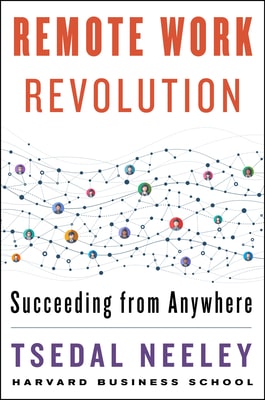
Author: Tsedal Neeley
Quote: “Remote work doesn’t significantly hurt job performance in any type of work.”
Who’s it for? Novice remote workers and managers who struggle to lead remote work teams.
What’s it about? Remote Work Revolution is about building and cultivating trust in a digital environment. The author of this book puts a great emphasis on maintaining trust within a team.
What you’ll learn? This book will teach you how to communicate with your team or manager in a remote work team to boost your performance; how to earn the trust of your colleagues or employees (if you are a manager); how to create productive and joyful virtual routines that you need to stick to.
Work from Home Superstar: How to Stay Focused and Rock Your Day
Amazon: ★★★★★ 4.7 (4 votes) | Goodreads: ★★★★☆ 4.4 (7 votes)
This hilarious book will give you much support to overcome fears that are holding you back from working online.
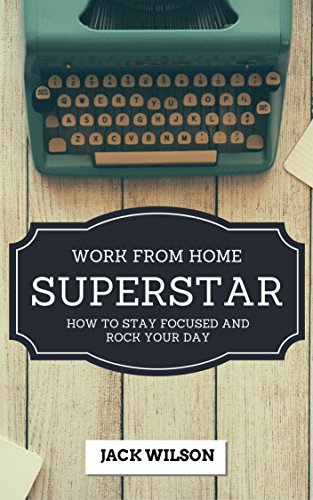
Author: Jack Wilson
Quote: “We’re all different. A work from home job isn’t the way that most people earn a living. It requires an incredible amount of discipline and focus. I don’t claim I have all the answers. This is simply my experience. What I’ve learned is on these pages, and I hope it can help others overcome the distractions and find focus.”
Who’s it for? Anyone struggling to incorporate home-based working into their lives.
What’s it about? Work from Home Superstar has a humorous approach on how to manage a home-based office from personal experience.
What you’ll learn? You’ll find out realistic advice and tips on how to alter your work habits and better organize your home office.
Wrapping up…
No matter which book you choose to read in the future, it’s important to cultivate a reading habit. Reading can enrich both your private and professional life, sharpen your organizational skills, and help you adopt new habits that can boost your productivity.
✉️ What is your favorite book on productivity? Which productivity book from our list did you choose to add to your reading list? Write to us at blogfeedback@clockify.me for a chance to be included in this or one of our future blog posts.
